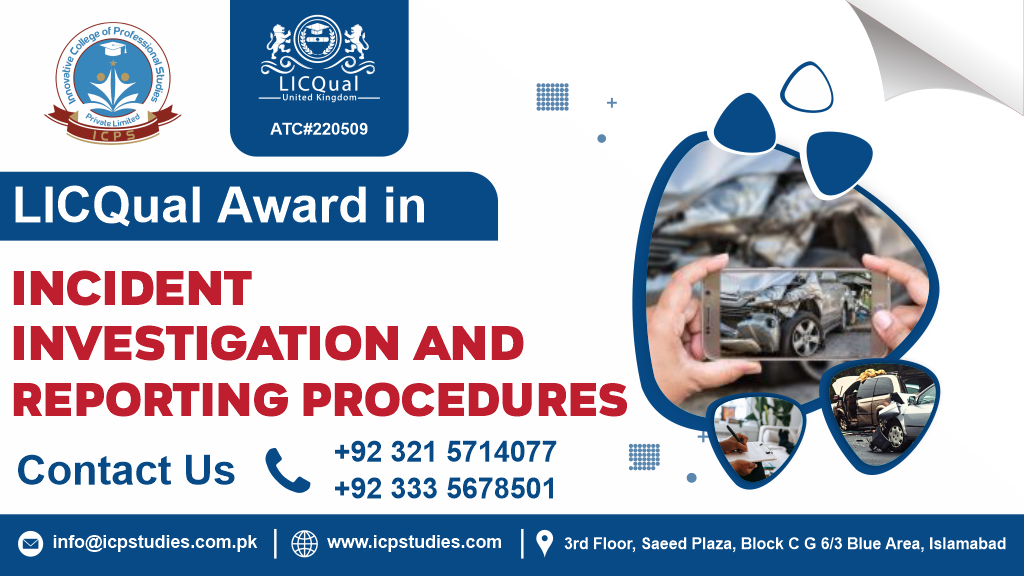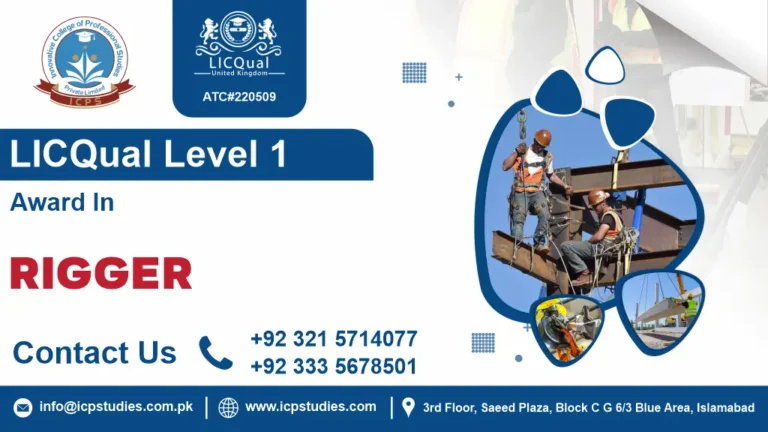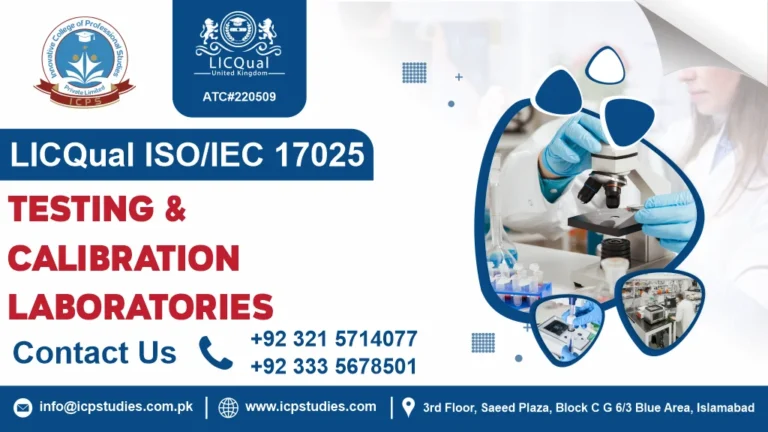In today’s fast-paced and dynamic work environments, incidents can occur unexpectedly, ranging from minor accidents to major emergencies. Proper incident investigation and reporting procedures are essential for maintaining workplace safety, preventing future incidents, and complying with regulatory requirements. One effective way to gain expertise in this critical area is by pursuing an Award in Incident Investigation and Reporting Procedures.
The Award in Incident Investigation and Reporting Procedures is a specialized qualification designed to equip individuals with the knowledge and skills necessary to effectively investigate and report workplace incidents.
The Award in Incident Investigation and Reporting Procedures is a valuable qualification for anyone seeking to enhance their understanding of incident management and safety procedures. By mastering the techniques, principles, and best practices covered in this award, individuals can play a crucial role in preventing incidents, protecting lives, and promoting a culture of safety in the workplace. Investing in incident investigation training not only benefits individuals but also contributes to the overall success and resilience of organizations in today’s complex and ever-changing world.
All About Award in Incident Investigation and Reporting Procedures
Course Overview
The “Award in Incident Investigation and Reporting Procedures” is a specialized qualification aimed at individuals who are involved in workplace safety, risk management, and incident response. This award provides comprehensive training on how to effectively investigate and report workplace incidents, ranging from minor accidents to major emergencies. Participants learn various techniques, methodologies, and best practices for conducting thorough incident investigations, identifying root causes, and implementing preventive measures to mitigate future risks.
The “Award in Incident Investigation and Reporting Procedures” is typically offered by accredited training providers and institutions and may vary in duration and content. Upon completion of the award, participants receive a recognized qualification that demonstrates their proficiency in incident investigation and reporting procedures. This qualification can enhance their professional credentials, contribute to a safer work environment, and help organizations comply with legal and regulatory requirements related to workplace safety.
Study Units
Learning Outcomes
Certainly! Here are the learning outcomes for each of the study units:
- Introduction to Fire Incident Investigation:
- Understand the fundamentals of fire incident investigation.
- Identify common causes and factors contributing to fire incidents.
- Recognize the importance of proper investigation procedures in fire safety management.
- Introduction to Incident Investigation and Reporting:
- Define the concept of incident investigation and its significance in workplace safety.
- Explain the objectives and benefits of incident reporting.
- Familiarize with basic incident investigation terminology and processes.
- Incident Investigation Techniques and Tools:
- Learn various techniques and tools used in incident investigation, such as root cause analysis, fault tree analysis, and fishbone diagrams.
- Understand how to apply these techniques to uncover underlying causes and contributing factors of incidents.
- Gain proficiency in using investigation tools effectively to facilitate thorough investigations.
- Legal and Ethical Considerations in Incident Reporting:
- Understand the legal and regulatory requirements governing incident reporting.
- Identify ethical considerations and obligations related to incident reporting.
- Learn how to ensure compliance with legal standards and maintain confidentiality and integrity throughout the reporting process.
- Data Collection and Preservation:
- Learn methods for collecting and preserving evidence and data related to incidents.
- Understand the importance of accurate and thorough data collection in the investigation process.
- Gain skills in documenting and organizing evidence to support investigative findings.
- Root Cause Analysis in Incident Investigation:
- Understand the concept of root cause analysis and its role in incident investigation.
- Learn how to identify and analyze root causes using various methodologies and tools.
- Develop the ability to differentiate between immediate causes and underlying systemic issues contributing to incidents.
- Effective Interviewing and Communication Skills:
- Develop effective communication skills for conducting interviews with witnesses, stakeholders, and involved parties.
- Learn techniques for active listening, questioning, and building rapport during interviews.
- Understand the importance of clear and accurate communication in gathering information and collaborating with others during the investigation process.
- Developing Incident Investigation Reports:
- Learn how to structure and format incident investigation reports effectively.
- Develop the ability to clearly and concisely summarize investigation findings, analysis, and recommendations.
- Gain proficiency in presenting investigative reports in a professional and informative manner.
- Incident Trend Analysis and Preventive Measures:
- Understand the importance of incident trend analysis in identifying patterns and trends in incident data.
- Learn how to analyze incident trends to identify recurring issues and areas for improvement.
- Develop skills in developing preventive measures and recommendations based on trend analysis findings to mitigate future risks.
- Incident Management and Response Procedures:
- Understand the principles of incident management and response.
- Learn how to implement effective incident response procedures to minimize harm and mitigate the impact of incidents.
- Familiarize with protocols for coordinating response efforts, communicating with stakeholders, and managing resources during incidents.
To enroll in the Award in Incident Investigation and Reporting Procedures, candidates should meet the following entry requirements:
- Relevant Work Experience: A minimum of one year of experience in a safety, health, or operational role is typically required.
- Educational Background: A high school diploma or equivalent is preferred; qualifications in health and safety, risk management, or a related field are beneficial.
- Basic Understanding of Incident Investigation: Familiarity with incident investigation principles and reporting procedures is essential.
- Age Requirement: Participants must be at least 18 years old.
- Language Proficiency: Proficiency in the language of instruction is necessary for effective comprehension of course materials.
- Commitment to Learning: A willingness to engage with the course content and apply knowledge of incident investigation and reporting.
These requirements ensure that candidates are adequately prepared to participate effectively in the course and gain essential skills in incident investigation and reporting procedures.
The Award in Incident Investigation and Reporting Procedures course is designed for:
- Health and Safety Professionals: Individuals responsible for maintaining safety standards and conducting investigations in the workplace.
- Managers and Supervisors: Those overseeing teams who need to understand incident reporting and investigation processes.
- Incident Investigators: Professionals specifically tasked with investigating accidents and incidents in various industries.
- Quality Assurance Personnel: Individuals focused on compliance and continuous improvement who need to analyze incidents for better practices.
- Emergency Responders: Personnel involved in responding to workplace incidents who want to enhance their investigation skills.
- Regulatory Compliance Officers: Staff ensuring adherence to safety regulations who need a comprehensive understanding of incident reporting.
This course is ideal for anyone seeking to develop their skills in incident investigation and reporting to improve workplace safety and compliance.
FAQs about Award in Incident Investigation and Reporting Procedures







